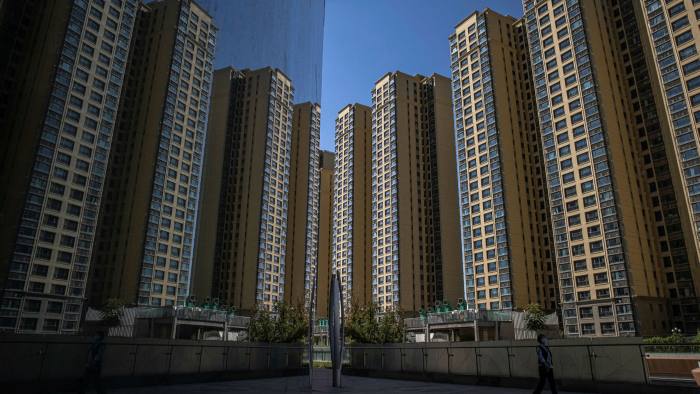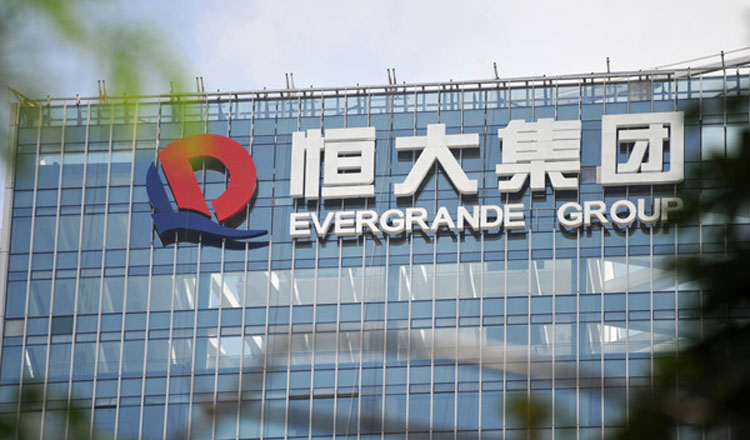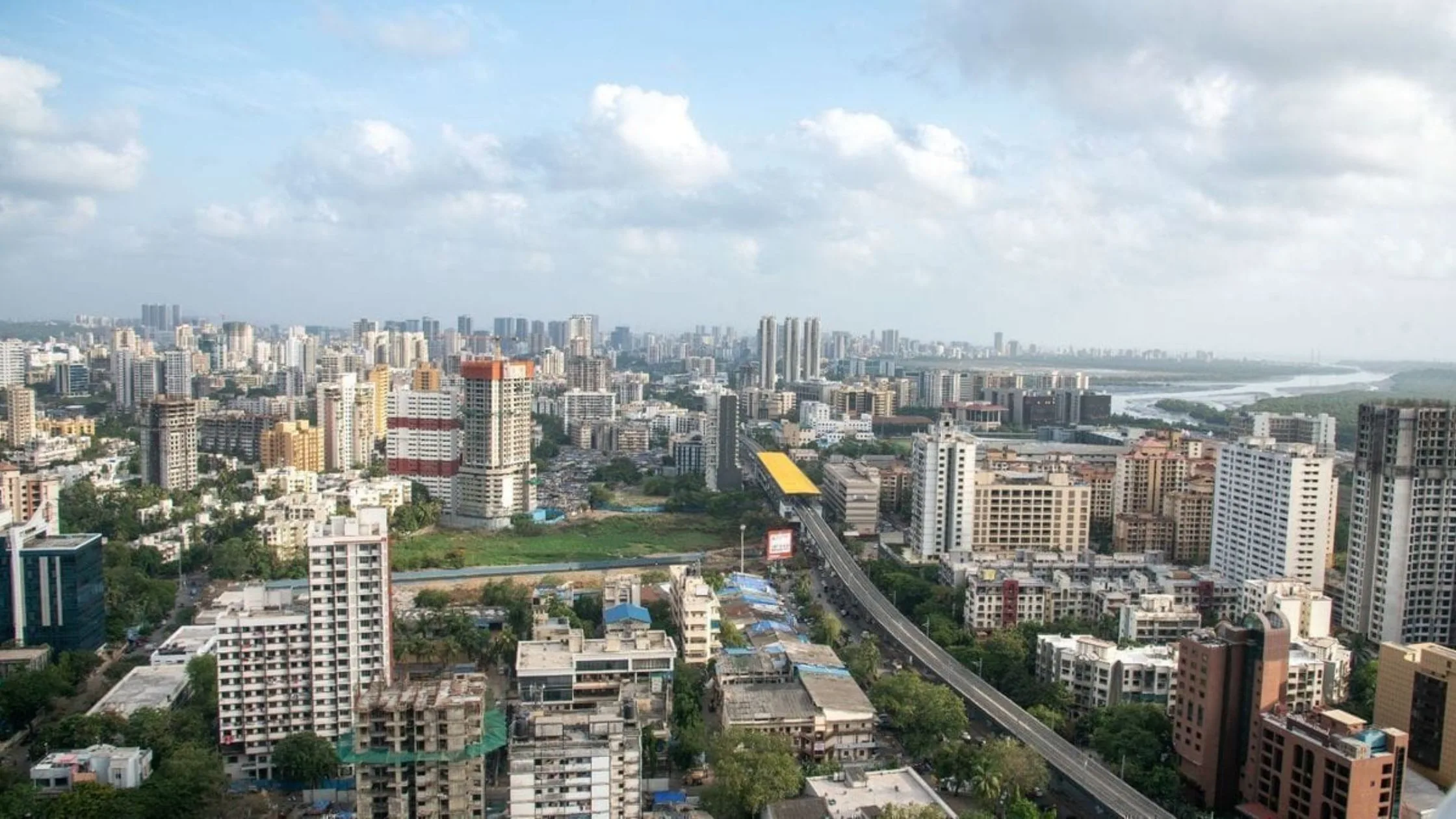Table of Content
▲ Investors have sheltered from China's real estate debt crisis in the pockets of the broader Asian credit market and have singled out India among opportunities relatively insulated from the historical turmoil.
Goldman Sachs Group recently took a positive stance on Asian high-yield bonds. Bank of New York Mellon Corp data shows that South Korea, Indonesia, Singapore, India, Malaysia, and Japan all saw capital inflows into corporate debt in the three months to Jan. 18, while China saw outflows.
Higher inflation means there are still losses for broader Asian bonds, as they have in many parts of credit markets globally, but they have been more subdued. Dollar bills for all Chinese issuer valuations lost about 3.7% in 2022, even after a rally in recent days in policy-supporting property developer securities.
 That compares with just 1.5% of Indian borrowers, 0.8% of South Korean companies, and 0.7% of Philippine loans, according to a Bloomberg index.
“Investors have been hiding in high-quality, investment-grade Indian credit, and elsewhere in Asia outside of China, as a way to reduce their exposure to Chinese holdings,” said Wai Mei Leong, portfolio manager at Eastspring Investments.
President Eduardo Francisco said last week that a recent example of a money manager reducing its exposure to Chinese bonds is BDO Capital & Investment Corp., which sold its holdings of these securities.
Both Goldman and CreditSights find Indian companies attractive. The US bank recommends the use of high-performance renewable energy sources, while the latter argues that financial firms are the best protected from problems in the world's second-largest economy.
Read More - Best locations to buy plot/land in Bangalore
Still, there is a big risk for the Asian credit market in general. Due to demand from investors seeking diversification, the aforementioned credit ratings for Asian credit outside of China have already been pushed harder. This means that many names in South and Southeast Asia only require an assessment of market performance, good basics notwithstanding.
Having taken a beating last year and through the first two weeks of 2022, Chinese dollar-denominated property bonds have risen in recent cycles thanks to a series of policy measures to ease restrictions on the property industry and broader monetary stimulus. But the forecasts are highly uncertain and more guesses are expected, according to Goldman.
If the failures don't get out of hand, it could generate continued interest in other pockets of the Asian market, but any protracted crisis that could cause an economic slowdown could have a ripple effect across Asia. Chinese debt accounts for a large part of the regional indices. Investors can opt-out entirely.
Faced with calls for redemption, bond fund managers have to "sell a little bit of everything," said Jean-Louis Nakamura, Lombard Odier's chief investment officer in the Asia Pacific. "I'm afraid this kind of indirect weakness in the Asian credit market will continue for some time."
But for now, Asian credit outside of China offers less volatility and some country-specific changes have buoyed investors.
When it comes to accessing global financial markets, India trails behind economies like Brazil and South Africa, not least because the country's central bank has historically been wary of speculative capital inflows. However, recent weeks have seen a surge in dollar-denominated issuance, with Reliance Industries raising $4bn earlier this year in the largest foreign-currency bond deal in Indian history.
There has also been an increase in green and sustainability bond sales, making it more in line with the trend elsewhere.
“We love the India space because there are a lot of ESG bond offerings coming from those companies and they are not very expensive compared to their Asian counterparts,” said Paula Chan, senior portfolio manager at Manulife Investment Management (Hong Kong). . Limited. "The supply there also provides quite a good variety."
Also, Read - 5 Reasons Why Buying A Plot Can Be A Wonderful Idea
That compares with just 1.5% of Indian borrowers, 0.8% of South Korean companies, and 0.7% of Philippine loans, according to a Bloomberg index.
“Investors have been hiding in high-quality, investment-grade Indian credit, and elsewhere in Asia outside of China, as a way to reduce their exposure to Chinese holdings,” said Wai Mei Leong, portfolio manager at Eastspring Investments.
President Eduardo Francisco said last week that a recent example of a money manager reducing its exposure to Chinese bonds is BDO Capital & Investment Corp., which sold its holdings of these securities.
Both Goldman and CreditSights find Indian companies attractive. The US bank recommends the use of high-performance renewable energy sources, while the latter argues that financial firms are the best protected from problems in the world's second-largest economy.
Read More - Best locations to buy plot/land in Bangalore
Still, there is a big risk for the Asian credit market in general. Due to demand from investors seeking diversification, the aforementioned credit ratings for Asian credit outside of China have already been pushed harder. This means that many names in South and Southeast Asia only require an assessment of market performance, good basics notwithstanding.
Having taken a beating last year and through the first two weeks of 2022, Chinese dollar-denominated property bonds have risen in recent cycles thanks to a series of policy measures to ease restrictions on the property industry and broader monetary stimulus. But the forecasts are highly uncertain and more guesses are expected, according to Goldman.
If the failures don't get out of hand, it could generate continued interest in other pockets of the Asian market, but any protracted crisis that could cause an economic slowdown could have a ripple effect across Asia. Chinese debt accounts for a large part of the regional indices. Investors can opt-out entirely.
Faced with calls for redemption, bond fund managers have to "sell a little bit of everything," said Jean-Louis Nakamura, Lombard Odier's chief investment officer in the Asia Pacific. "I'm afraid this kind of indirect weakness in the Asian credit market will continue for some time."
But for now, Asian credit outside of China offers less volatility and some country-specific changes have buoyed investors.
When it comes to accessing global financial markets, India trails behind economies like Brazil and South Africa, not least because the country's central bank has historically been wary of speculative capital inflows. However, recent weeks have seen a surge in dollar-denominated issuance, with Reliance Industries raising $4bn earlier this year in the largest foreign-currency bond deal in Indian history.
There has also been an increase in green and sustainability bond sales, making it more in line with the trend elsewhere.
“We love the India space because there are a lot of ESG bond offerings coming from those companies and they are not very expensive compared to their Asian counterparts,” said Paula Chan, senior portfolio manager at Manulife Investment Management (Hong Kong). . Limited. "The supply there also provides quite a good variety."
Also, Read - 5 Reasons Why Buying A Plot Can Be A Wonderful Idea







